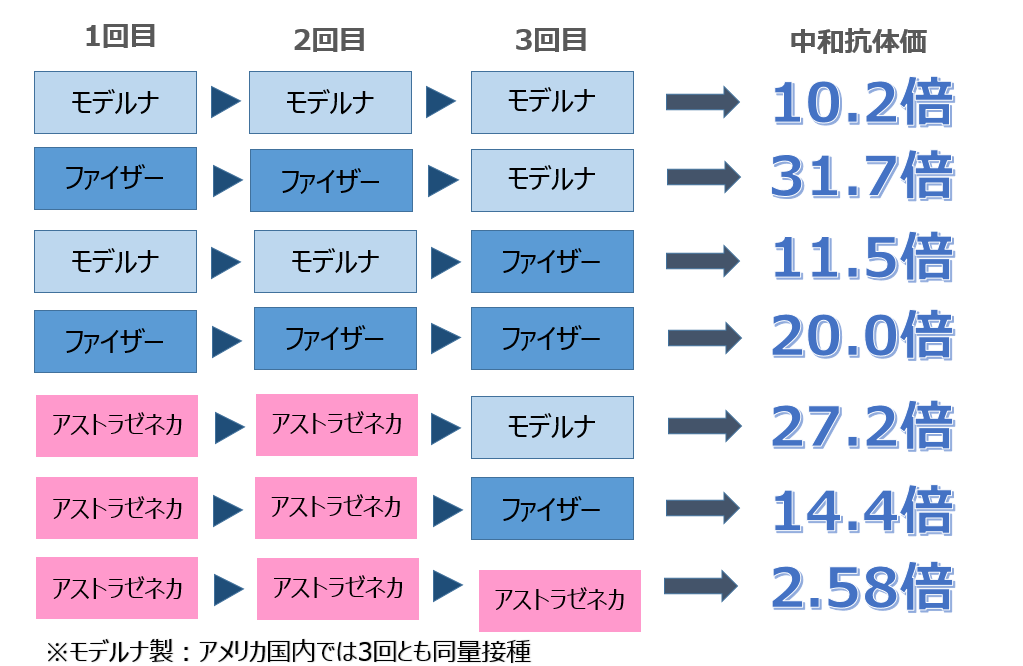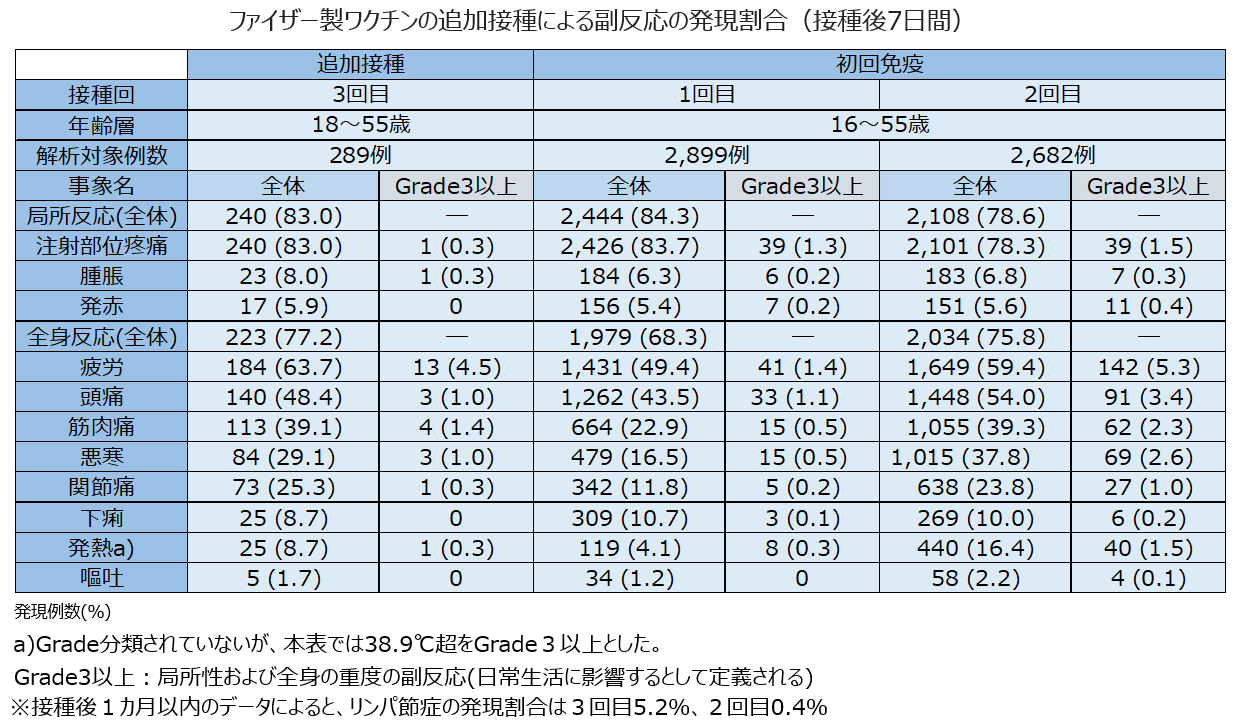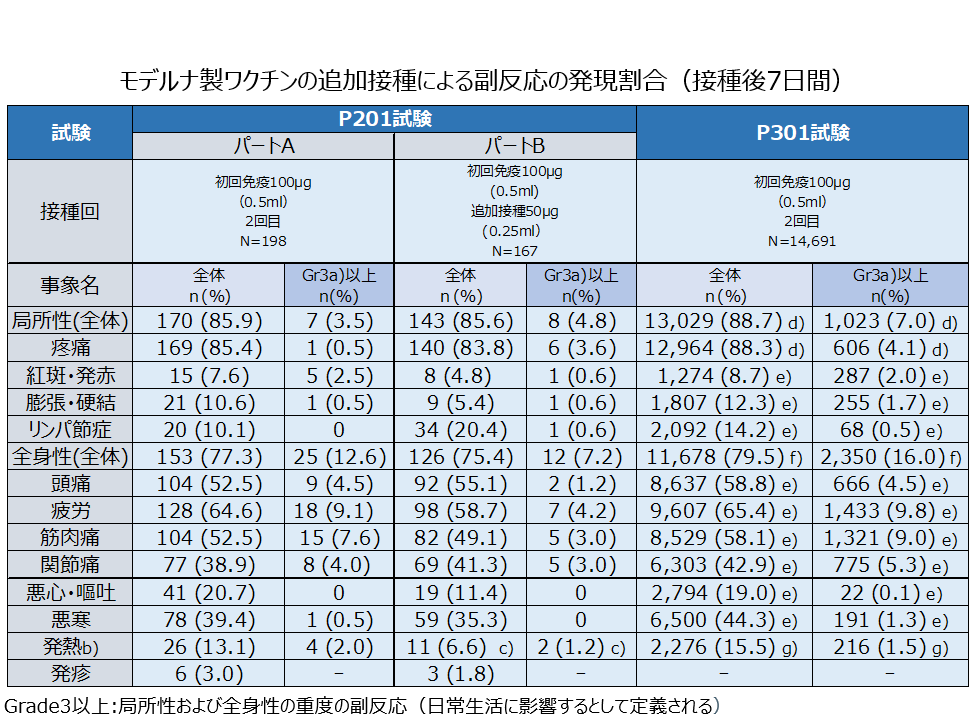
Release date: 2021.12.28
The third booster vaccination "booster vaccination" for those who have completed the second vaccination of the new corona vaccine has started for medical workers. An increase in the neutralizing antibody titer due to booster vaccination is expected to prevent the onset and severity of the new coronavirus, but it seems that the neutralizing antibody titer produced varies greatly depending on the type of vaccine selected. The side effects of booster vaccination are considered to be similar to those after the second vaccination for both Pfizer and Moderna.
Many of the new corona vaccines are basic to be vaccinated twice, but it is said that the immunity will decrease as time passes from vaccination. In addition, there are concerns that the efficacy of vaccines will decline due to the epidemic of highly contagious mutated viruses such as the Delta and Omicron strains, and the need for booster vaccination has been pointed out. In order to strengthen the immunity of those who have finished vaccination, in Japan, a booster vaccination was started for medical workers from December. From January next year, it will be expanded to the general public, mainly the elderly, and from March, occupational vaccination will start. In principle, the target of vaccination is 18 years or older, and 8 months or more have passed since the second vaccination, but the vaccination interval will be shortened to 6 months for medical workers and residents of elderly facilities, and to 7 months for general elderly people. A policy is issued. As a booster vaccination, Pfizer and Moderna vaccines have received pharmaceutical approval, and those who wish to be vaccinated can choose from these two types. Moderna has a dosage of 0.25 mL per dose, which is half of what it used to be.
In a post-inoculation study of the Pfizer vaccine conducted in Israel, the booster vaccine was 93% effective in preventing hospitalization, 92% in preventing severe disease, and 81% in preventing death. Furthermore, those who received the booster vaccine at age 60 or older had about 11 times less chance of infection and about 1 times less severe disease than those who did not receive the booster vaccine. There is also a report that On December 21, Israel announced its intention to start a fourth dose of the vaccine for the elderly over the age of 60 and health care workers.

Modified from Atmar RL, et al. MedRxiv. Oct 15, 2021. / Munro APS, et al. Lancet Dec 18-31, 2021.
As for booster vaccinations, “alternating vaccinations”, in which different vaccines are given in the first and second doses, are attracting attention. According to a research survey in the United States, about 460 people who had completed vaccinations made by Pfizer, Moderna, and Janssen were divided into nine groups and given three additional vaccines. , The neutralizing antibody titer 15 days after the booster was 20.0 times higher for the third dose made by Pfizer, 31.7 times higher for Moderna, and 12.5 times higher for Janssen. For those who hit Moderna for the first and second times, the third time was 10.2 times for Moderna, 11.5 times for Pfizer, and 6.2 times for Janssen. In other words, the neutralizing antibody titers differed depending on the combination of vaccines. Since the neutralizing antibody titer increases significantly after 3 doses of vaccination, it is thought to be effective in preventing the onset and aggravation of the disease. In this test, Moderna inoculates the same amount all three times.
In addition, according to a British survey, among people aged 30 and over who had completed two doses of AstraZeneca vaccine, the antibody titer was reduced when receiving a booster vaccine made by Pfizer, Moderna, or AstraZeneca. When measured, the highest antibodies compared to controls (meningococcal vaccination) were from Moderna 27.17 times, Pfizer 14.43 times, and AstraZeneca 2.58 times.
As a side effect of the booster vaccination, both Pfizer and Moderna have confirmed adverse events * after the second vaccination as a result of a clinical trial of booster vaccination without alternating vaccinations conducted in the United States. By comparison, the expression tendencies are said to be roughly the same. However, it has been reported that the incidence of swollen lymph nodes is higher compared to the second vaccination (5.2% for Pfizer, 20.4% for Moderna). According to data from the US CDC, various symptoms (local and systemic reactions, health conditions, interference with daily life and work, etc.) seen within 1 week after booster vaccination with any vaccine were , It is said that the expression rate was lower than after the second inoculation.
Adverse reactions to booster vaccinations with alternating vaccinations were similar to those reported for the 1st and 2nd doses. have been reported to be equivalent.
Regarding the effect of booster vaccination against the Omicron strain, Moderna collaborated with the National Institute of Allergy and Infectious Diseases and Duke University in the United States to examine the effectiveness of the vaccine against the Omicron strain. It is said that the neutralizing antibody titer was 37 times higher than the second inoculation by inoculating half the amount. In addition, Pfizer Inc. has also announced a research result that the neutralizing antibody titer against Omicron strain increased 25 times compared to the existing 2 times inoculation with Pfizer's additional inoculation.
※“Adverse events are unfavorable symptoms that occur after vaccination, including cases in which the causal relationship with vaccination cannot be determined or cannot be determined immediately.”


MEDIUS Group is developing a business centered on the sale of medical equipment. We (Medical + us) involved in medical care also want to play the role of an information source (Media) that delivers useful information for the medical field and people's healthy tomorrow.